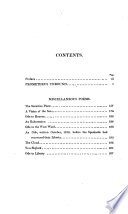Quotes from work
Prometheus Unbound

Prometheus Unbound is a four-act lyrical drama by Percy Bysshe Shelley, first published in 1820. It is concerned with the torments of the Greek mythological figure Prometheus, who defies the gods and gives fire to humanity, for which he is subjected to eternal punishment and suffering at the hands of Zeus. It is inspired by the classical Prometheia, a trilogy of plays attributed to Aeschylus. Shelley's play concerns Prometheus' release from captivity, but unlike Aeschylus' version, there is no reconciliation between Prometheus and Jupiter . Instead, Jupiter is abandoned by his supportive elements and falls from power, which allows Prometheus to be released.

“Soul meets soul on lovers' lips.”
The Moon, Act IV, l. 451
Variant: Soul meets soul on lovers' lips.
Source: Prometheus Unbound (1818–1819; publ. 1820)

“Death is the veil which those who live call life;
They sleep, and it is lifted.”
Earth, Act III, sc. iii, l. 113
Variant: Lift not the painted veil which those who live
Call Life.
Source: Prometheus Unbound (1818–1819; publ. 1820)

“Familiar acts are beautiful through love.”
The Earth, Act IV, l. 403
Prometheus Unbound (1818–1819; publ. 1820)

“On a poet's lips I slept
Dreaming like a love-adept
In the sound his breathing kept.”
Fourth Spirit, Act I, l. 737
Prometheus Unbound (1818–1819; publ. 1820)

“He gave man speech, and speech created thought,
Which is the measure of the universe.”
Asia, Act II, sc. iv, l. 72
Prometheus Unbound (1818–1819; publ. 1820)

“To know nor faith, nor love, nor law, to be
Omnipotent but friendless, is to reign.”
Asia, Act II, sc. iv, l. 47
Prometheus Unbound (1818–1819; publ. 1820)

“It doth repent me; words are quick and vain;
Grief for awhile is blind, and so was mine.”
Prometheus, Act I, l. 304
Prometheus Unbound (1818–1819; publ. 1820)

“Thy words are like a cloud of winged snakes;
And yet I pity those they torture not.”
Prometheus, Act I, l. 632
Prometheus Unbound (1818–1819; publ. 1820)

“All spirits are enslaved which serve things evil.”
Demogorgon, Act II, sc. iv, l. 110
Prometheus Unbound (1818–1819; publ. 1820)